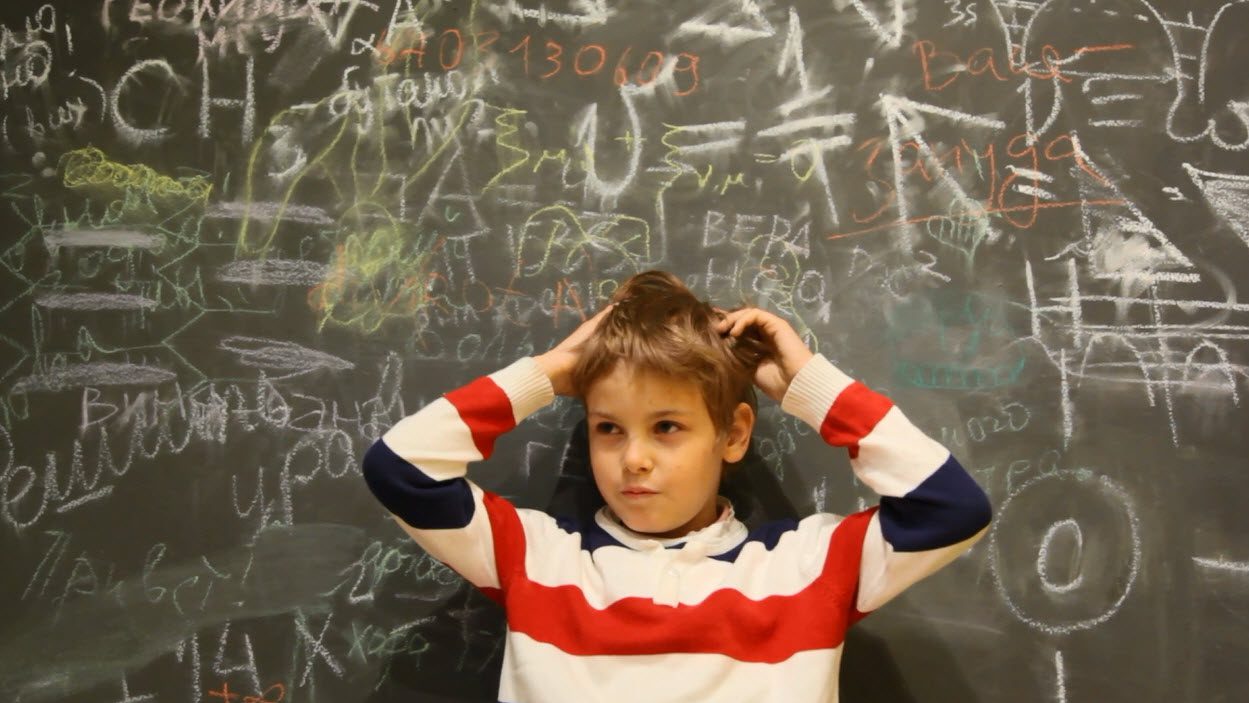What Does It Mean to Be “Gifted?”

Posted in: Grade School, Parenting Concerns, Pre-School
Topics: Child + Adolescent Development, Learning + Attention Issues
Giftedness. It’s such a loaded word.
Almost all parents think their children are gifted. And in a sense, they’re right. Watching a child grow from an infant into a human who can read, complete math problems, and have friendships seems miraculous. No wonder many parents think this way. Most people use terms like “bright,” “gifted,” “exceptional,” “remarkable,” and “talented” interchangeably, but when a psychologist uses the term “gifted,” we’re usually talking about something that is statistically quite rare.
About 3 to 5 out of every 100 children could be considered gifted. Giftedness in a statistical sense is something that’s very unique. Gifted children can be considered so in a number of areas, including intelligence, creative or artistic abilities, specific academic abilities (e.g., gifted at math), or leadership skills. Although intellectual abilities represent only one type of exceptionality, it would be rare to classify a child as gifted without administering an IQ test.
Gifted children have often been stereotyped as unsociable “nerds,” but research suggests that most gifted children do not fit that stereotype. In addition, being a gifted student is not a guarantee of success in school. For example, the verbal maturity of a gifted child (which might lead a child to dominate class discussions) can be interpreted by some teachers as disruptive or inappropriate. Peers can sometimes be less than supportive of a child who knows the answer to every math problem before anyone else does. I often see children who were never identified as intellectually gifted at an early age, but who by adolescence feel depressed and bored with school. They’ve been labeled as “oppositional” or “lazy” because they’ve failed to complete assignments that they see as “mindless busywork.” Then there is also the possibility that a child can have both above-average intelligence paired with an issue or disorder, such as ADHD. This presents an interesting challenge to the classroom teacher, who must keep a hyperactive, information-hungry child motivated while meeting the needs of the other students.
The special needs of the gifted child have received much less attention than students whose difficulties fall at the other end of the bell-shaped curve. In part, this is because giftedness is not a “disorder” in need of treatment but something to be fostered. However, gifted students are often referred for assessment because something is out of place. In some cases, it’s because a teacher notices that a child isn’t fitting in socially because her intellectual skills set her apart. In other cases, a gifted child may be so far ahead of his age-mates that he already knows much of the curriculum before it is even taught. Their boredom sometimes results in low achievement and grades. In contrast, gifted students can also be quite perfectionistic and may define success as not just getting 100 on a test but getting a 100 plus all the extra credit. Their high standards can lead to a fear of failure and, at worst, feelings of low self-esteem and depression.
By definition, people who are gifted have above-average intelligence and/or superior talent for something, such as music, art, or math. Most public-school programs for the gifted select children who have superior intellectual skills and academic aptitude. Children with a superior talent for something, like arts, drama, or dance, aren’t typically provided with services within the school setting, though there are exceptions as some districts offer special schools for children who are exceptional in the sciences or performing arts.
There are no tests to identify children with a superior talent in music or the arts, because talent is somewhat subjective. However, a number of tests can identify children with superior intelligence. Not surprisingly, these tests are called intelligence (IQ) tests. The most commonly used test for children aged 6 to 16 years is the Wechsler Intelligence Scale for Children (WISC). People argue about what the cutoff should be for giftedness, with some arguing that 5 percent of the population could qualify while others argue that it should be 1 or 2 percent. Some people would define it even more broadly, as being in the top 20% of the population.
Regardless of the cutoff, children who are gifted tend to have similar characteristics which include traits such as:
- Fascination with ideas and a sophisticated vocabulary
- Need to make sure things are done “just right”
- Ability to perceive many sides of an issue
- Ability to think abstractly and metaphorically
- Ability to visualize models and systems
- Ability to learn things almost without a need for being taught, such as learning to read before formal reading instruction
- Concern for early moral and existential issues
Being identified as gifted does not guarantee your child will receive special services in school, as it is not mentioned in the Individuals with Disabilities Education Act (IDEA) – the federal law that defines a child’s right to special education and related services. Although schools are not required to provide special services for gifted children, some do, and most programs fall into two categories:
- Enrichment experiences (giving students additional learning experiences without them moving up a grade); and
- Acceleration (placing gifted students in grade levels ahead of their peers).
Enrichment services can occur within the classroom or outside the classroom, such as in a resource-room setting. Sometimes, schools will provide gifted students with mentors outside the school environment. For example, a student who has an aptitude for science might be mentored by a chemist, engineer, or physicist. Some school districts offer special schools for gifted and talented students. These school districts are typically located in large metropolitan areas.
Because there is no standard definition of gifted and talented, each state has its own criteria for identifying students and providing services. Some states provide no special services at all.
If you think your child might be gifted, you could start by talking to your child’s teacher or principal to discuss options for testing your child and possibilities for specialized programming. Even if your school doesn’t provide services, testing can be helpful. If testing indicates your child is gifted, you can enroll him or her in after-school programs. Most metropolitan areas have programs that are offered through museums, community education centers, or universities. Overall, gifted students benefit from learning by self-discovery and exploration, and acquiring skills through intuitive reasoning instead of rote memory and drill. They also need opportunities to socialize with peers and need to be encouraged to pursue activities in which they feel challenged.
The following resources are recommended if you would like more information about giftedness:
- National Association for Gifted Children
- Council for Exceptional Children
- The Association for the Gifted
- National Society for the Gifted and Talented
Was this post helpful?
Newsletter
Subscribe Today
Your monthly dose of the latest mental health tips and advice from the expert team at The Clay Center.
SubscribeMultimedia
Quick Jumps
Tag Cloud
-
addiction
ADHD
adolescents
anorexia
anxiety
autism
behavior
CBT
child development
children
college
communication
covid-19
depression
digital media
dyslexia
eating disorder
evaluation
family
fear
healthy development
learning
learning disabilities
learning disability
mental health
mental illness
parenting
parents
Podcast
PTSD
relationships
resilience
school
shrinking it down
social media
stigma
stress
suicide
technology
teenagers
teens
therapy
trauma
treatment
violence

 Share
Share Tweet
Tweet





